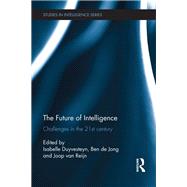- ISBN: 9780415663281 | 0415663288
- Cover: Hardcover
- Copyright: 3/13/2014
The aim of this edited volume is to discuss the challenges the future holds for different aspects of the intelligence process and for organizations working in the field. The book analyzes the different activities that make up the intelligence process, or the 'intelligence cycle', with a focus on changes brought about by external developments, such as in the international arena, the field of technology or he nature of security threats. The theme of exploring the future of intelligence does not involve a focus on predictive capabilities or future gazing. The future is by nature unknowable and cannot be predicted, but can at best be estimated, which is what the intelligence and security services in fact do for their political masters. The contributors in this volume look at possible scenarios for future developments, including estimations about their plausibility, and their possible consequences for the functioning of intelligence and security services. Gone are the days when the main focus of Western intelligence services was on the intentions and capabilities of the Soviet Union and its allies. Instead, at present, there is a plethora of threats and problems that deserve attention. Some of these problems are short-term and potentially acute, such as terrorism, others are longer-term and by nature often more difficult to foresee in their implications, such as the exhaustion of natural resources. As the essays in this book show, scholars in the field can and do have strong differences of opinion regarding the nature, intensity and likelihood of a particular threat, for instance with respect to cyber-attacks and cyber-espionage. Points of view also diverge widely on what changes are deemed necessary in the way the intelligence process was organized, its relationship with basic democratic principles such as the rule of law, and on the opportunities for increased international intelligence cooperation to meet possible future threats and changes in the political environment. This book will be of much interest to students of intelligence studies, strategic studies, foreign policy, security studies and IR in general.







